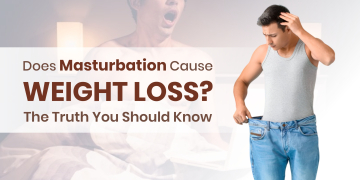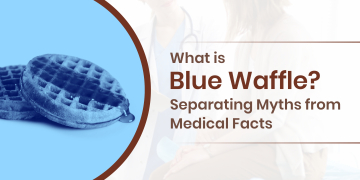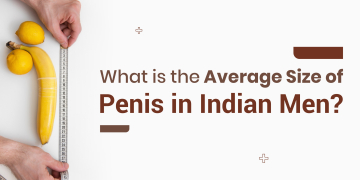Testicle pain, also known as orchialgia, can be a distressing condition that affects men of all ages. It may arise suddenly or gradually, and its causes vary widely. Understanding the signs and symptoms of testicle pain, as well as the available testicular pain treatment options, is crucial for managing and alleviating this condition effectively.
Signs and Symptoms
- Pain Characteristics:
- Sharp or Dull Pain: Testicle pain can range from a sharp, stabbing sensation to a dull ache. The intensity may vary depending on the underlying cause.
- Localized Pain: The pain typically originates in one or both testicles. It may also radiate to the abdomen, groin, or lower back.
- Physical Symptoms:
- Swelling or Tenderness: Inflammation or swelling of the testicles or scrotum is common in various conditions.
- Changes in Testicle Size: An enlargement or shrinkage of one or both testicles may occur.
- Redness or Warmth: The scrotal skin may appear red or feel warm to the touch in cases of infection or inflammation.
.jpg)
- Additional Symptoms:
- Nausea and Vomiting: Severe testicle pain can trigger nausea and vomiting, especially when sudden.
- Urinary Symptoms: Some conditions causing testicle pain may also lead to urinary symptoms such as pain during urination or frequent urination.
- Fever: Infections or inflammations can cause fever along with testicle pain.
Hypogonadism refers to a deficiency in sex hormone production (testosterone in males), which manifests with symptoms like low libido, erectile dysfunction, fatigue, and infertility.
Common Causes
.jpg)
- Trauma:
- Direct Injury: Physical trauma, such as a blow to the groin or sports-related injury, can cause testicle pain.
- Repetitive Strain: Activities that involve repetitive movements or strain on the groin area can lead to discomfort.
- Infections:
- Epididymitis: Inflammation of the epididymis, a coiled tube located behind the testicle, often due to a bacterial infection.
- Orchitis: Inflammation of the testicle itself, commonly caused by viral infections like mumps or sexually transmitted infections.
- Medical Conditions:
- Testicular Torsion: A medical emergency where the spermatic cord twists, cutting off blood flow to the testicle.
- Hydrocele: Fluid buildup around the testicle, leading to swelling and discomfort.
- Varicocele: Enlargement of veins within the scrotum, similar to varicose veins, which can cause pain or discomfort.
- Other Causes:
- Hernia: A condition where part of an organ protrudes through the abdominal wall, often causing pain in the groin and testicular area.
- Cancer: Although rare, testicular cancer can present as pain or discomfort in the testicle, along with other symptoms such as a lump or swelling.
Treatment Options
- Medical Evaluation:
- Physical Examination: A thorough examination of the scrotum, testicles, abdomen, and groin area to assess for signs of swelling, tenderness, or abnormalities.
- Imaging Tests: Ultrasound may be used to visualize the testicles and surrounding structures to identify potential causes such as torsion, tumors, or fluid buildup.
- Medication:
- Antibiotics: Prescribed for bacterial infections such as epididymitis or orchitis.
- Pain Relief: Over-the-counter or prescription pain relievers to alleviate discomfort.
- Surgical Interventions:
- Orchiectomy: Surgical removal of a testicle may be necessary in cases of severe trauma, infection, or testicular cancer.
- Surgical Repair: Necessary for conditions like testicular torsion or hernia that require manual intervention to correct.
- Home Remedies and Self-Care:
- Rest and Support: Avoiding activities that exacerbate pain and providing adequate scrotal support with briefs or a jockstrap.
- Ice Packs: Applying ice packs to the scrotum can help reduce inflammation and pain.
- Lifestyle Adjustments:
- Preventive Measures: Using protective gear during sports activities to reduce the risk of trauma.
- Sexual Health Practices: Practicing safe sex to reduce the risk of sexually transmitted infections.
If you are experiencing persistent or severe testicle pain, consulting with a qualified sexologist in Delhi is essential. A sexologist specializing in men's health can provide expert diagnosis and personalized treatment options tailored to your specific condition. They can offer:
- Specialized Care: A sexologist in Delhi will have the expertise to diagnose the underlying cause of your testicle pain and recommend the most effective treatment plan.
- Comprehensive Evaluation: They will conduct a thorough evaluation, which may include physical examinations and diagnostic tests to identify the root cause of your symptoms.
- Tailored Treatment: Based on the diagnosis, the sexologist will provide personalized treatment options that may include medication, lifestyle modifications, or surgical intervention, depending on the severity and nature of your condition.
By consulting with the best sexologist in Delhi, you can receive the necessary support and guidance to effectively manage and alleviate testicle pain, ensuring optimal reproductive health and overall well-being.
Conclusion
Testicle pain can significantly impact a man's quality of life, ranging from mild discomfort to severe, debilitating pain. Prompt medical evaluation and treatment, including consultation with a qualified sexologist in Delhi, are crucial steps toward understanding and addressing the underlying causes. Whether due to trauma, infection, or medical conditions like torsion or cancer, early intervention and personalized care are key to managing testicle pain effectively and maintaining optimal reproductive health.

















.jpg)







.jpg)
.jpg)
.jpg)